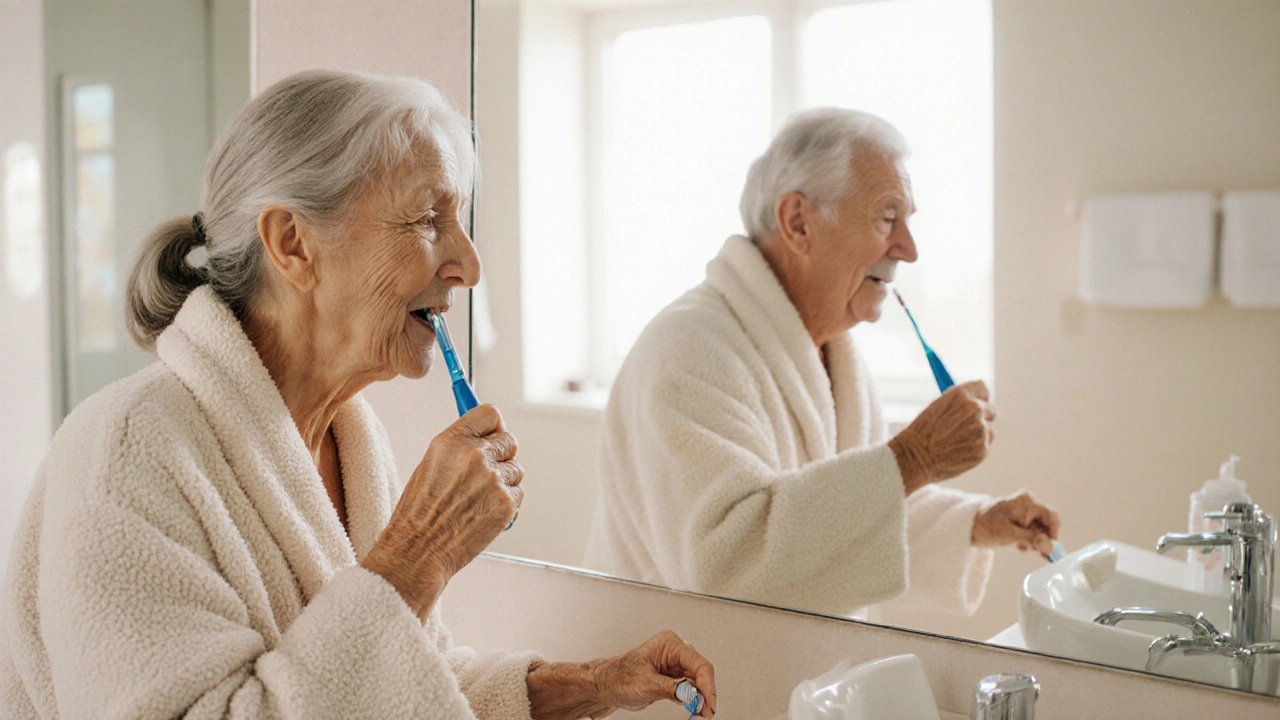Elderly Dental Care: What Seniors Need to Know About Oral Health
When we talk about elderly dental care, the specialized oral health practices and treatments designed for older adults to prevent decay, manage tooth loss, and maintain function. Also known as senior oral health, it's not just about brushing harder—it’s about adapting to changes in the body that make gums more fragile, saliva drier, and medications more likely to cause damage. Many people assume that losing teeth is just part of aging, but that’s a myth. Tooth loss isn’t inevitable. It’s often the result of untreated gum disease, poor access to care, or side effects from common prescriptions like blood pressure meds and antidepressants.
Gum disease, a chronic infection of the tissues holding teeth in place, often worsens with age due to reduced immune response and less frequent dental visits. It doesn’t always hurt. No pain doesn’t mean no problem. Dry mouth, caused by over 400 medications, makes it harder to wash away food and bacteria. That’s why seniors on multiple prescriptions need extra care. Dentures, removable replacements for missing teeth, are common but often poorly fitted, leading to sores, difficulty eating, and even malnutrition. Ill-fitting dentures aren’t just uncomfortable—they can change how someone eats, which affects their overall health. And if you’re not checking dentures regularly, you’re missing signs of oral cancer, which is more common in older adults and often caught too late.
It’s not just about visits to the dentist. It’s about daily habits that work with aging bodies. Electric toothbrushes help when hands shake. Fluoride rinses replace lost enamel protection. Soft-bristled brushes prevent gum damage. And cleaning dentures isn’t optional—it’s essential to stop bacteria buildup that can lead to pneumonia, a serious risk for seniors. Many don’t realize that poor oral health links directly to heart disease, diabetes, and even memory decline. The mouth doesn’t work in isolation.
What you’ll find in this collection are real, practical guides that cut through the noise. No fluff. No sales pitches. Just clear advice on managing dry mouth, choosing the right denture care products, spotting early signs of gum disease, and understanding how common medications affect teeth. You’ll see how others handle pain, navigate insurance, and keep eating what they love. This isn’t theoretical. These are the tools and stories that help real people live better, longer, with healthier smiles.
Senior Oral Health Prophylaxis: Essential Tips for Keeping Teeth & Gums Healthy
Learn practical, age‑specific steps to keep seniors' teeth and gums healthy, from daily routines to product picks and dentist visits.
